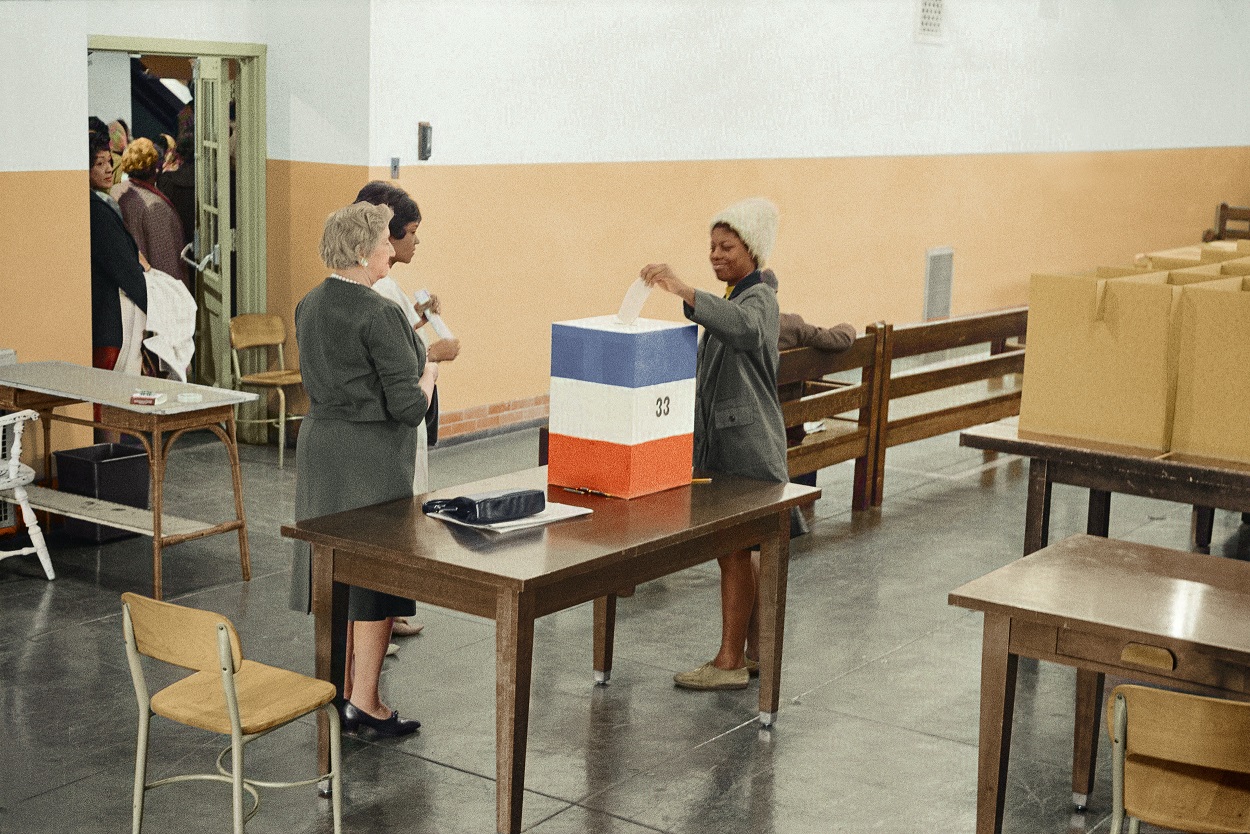Was Florida’s SB 90 aimed at fair, fraud-free elections or Black voter suppression?
Since the 2020 Presidential election, Republicans have worked hard to pass voter suppression laws in states across the country. Citing the myth that rampant voter fraud cost Donald Trump a “sacred landslide victory,” each of these packages of cynical legislation was designed to maximize the chances of Republican lawmakers cementing their hold on power.
Republicans, of course, usually don’t perceive (or advertise) it that way. In isolation, each element of these voter suppression efforts could, possibly, be taken at face value as a well-intentioned, perfectly straight, common sense attempt to “safeguard the sanctity of our elections” or to “increase confidence in the elections process.” That’s true enough if one doesn’t think too hard about it or know the history behind the movement well enough to connect the dots.
Florida Judge Mark E. Walker of the Federal District Court in Tallahassee, however, connected the dots just fine. Late last week, he issued a nearly 300 page rebuke bringing it all together as he blocked the state from enforcing broad swaths of the GOP voter suppression game plan and putting the state on a decade-long probation period before it would be permitted to try playing games with voting rights without asking for permission first.
Why a slapdown so aggressive that it should have echoed further than Will Smith’s Oscar hit? Simple. “This case is about our sacred right to vote,” writes Judge Walker, “won at great cost in blood and treasure.” He adds, “the right to exercise the franchise in a free and unimpaired manner is preservative of other basic civil and political rights, any alleged infringement of the right of citizens to vote must be carefully and meticulously scrutinized.”
The case folded four challenges against the law into one. Plaintiffs included the League of Women Voters, the Harriet Tubman Freedom Fighters (HTFF), Florida branches of the NAACP, and Florida Rising Together, a group dedicated to building power in marginalized communities. By their powers combined, they argued that Florida’s law, SB 90, violated the First, Fourteenth and Fifteenth Amendments, Section 2 of the Voting Rights Act, and Title II of the Americans With Disabilities Act.
SB 90 would have compelled organizations to communicate what HTFF felt was a misleading message to potential new voters they were helping to register, saying that they might not turn in their registration forms properly and suggesting that they sign up online instead.
The League of Women Voters based their suit the law’s onerous requirements for ballot drop boxes, the requirement that voters must re-apply for a mail-in ballot before every general election, the deceptive warning, and the ban on providing voters in long lines with water or a snack in case they were suffering from having to wait too long or in the hot sun in order to cast their vote.
The Florida State Conference of Branches and Youth Units of the NAACP argued that SB 90 violated multiple laws by disproportionately affecting Black, Latinx and disabled voters.
Florida Rising Together’s suit challenged the reduced availability of ballot drop boxes, restrictions on organizations trying to get out the vote, increased difficulty to vote by mail, and the ban on providing water and snacks (which some conservative organizations have likened to payments or bribes meant to influence voters).
While Republican organizations and individuals have defended each prohibition as a common sense defense against voter fraud, it’s when they’re all added together that the big picture of voter suppression comes into view. Judge Walker writes, “Defendants argue that SB 90 makes minor prophylactic changes to the election code. Plaintiffs, on the other hand, allege that SB 90 runs roughshod over the right to vote, unnecessarily making voting harder for all eligible Floridians, unduly burdening disabled voters, and intentionally targeting minority voters—all to improve the electoral prospects of the party in power… Having reviewed all the evidence, this Court finds that, for the most part, Plaintiffs are right.”
While Walker disagreed that SB 90’s voter suppression effects were applied as squarely at Latinx voters as they were at the Black community, he was scathing in his takedown of the law. “Florida has a grotesque history of racial discrimination,” he noted, adding that “Florida has repeatedly, recently, and persistently acted to deny Black Floridians access to the franchise.”
If SB 90 were in fact aimed at genuinely insecure and fraudulent election processes and not as a voter suppression effort against “low quality” or “illegitimate” voters (as if we don’t all know what that means), one would expect there to be glaring problems in the Florida system that cry out to be fixed. However, even SB 90’s Republican sponsors couldn’t settle on the official rationale for introducing the bill, or at least one that they could utter in public without shame. Florida Representative Blaise Ingoglia (R-35) claimed that there weren’t any integrity problems, but wanted “consistency” in election administration. Florida Senator Dennis Baxley agreed that there had not been instances of vote-by-mail or drop box fraud.
So why was SB 90 so necessary?

The Daytona Beach News-Journal noted from Walker’s order that “suppressing just 1% of Black voters, or 19,381, would on average suppress 17,433 Democratic votes, and thus could easily swing an election … Democrats are more likely to use drop boxes. If the Legislature had targeted Democrats writ large, it would have simply banned drop boxes … but this is not what the Legislature did; SB 90 effectively bans drop box use at the specific times and the specific days that Black voter, not all Democratic voters are most likely to use them.”
Walker also took into consideration the commentary on the floor of the Florida legislature as SB 90 was passed. Baxley (R-12) acknowledged that SB 90, especially the changes in drop box availability, would disproportionately affect Black voters. Senator Jim Boyd (R-21) remarked that elections “don’t sneak up on us” and that it’s our responsibility to “prepare” for them, presumably even in the face of voter suppression efforts. Senator Travis Hutson (R-7) added that the only excuse one has for not voting is laziness. Pairing tired old tropes like these with legislators’ voting records, Walker perceived a great likelihood that the desire to suppress Black votes, which typically skew Democratic, was behind SB 90.
Florida Governor Ron DeSantis (R) suggested that Walker, an Obama appointee, had neither the facts nor law itself on his side, comparing his decision to a nonsensical ruckus. Unfortunately, Judge Walker’s decision is likely to be overturned on appeal to more conservative courts. The way to change the courts is through changing the politicians who appoint them, and with voter suppression legislation like SB 90, the GOP is likely to keep their hands on the reins of power to prevent changes like that for quite some time. At what point would we live in a DINO – “democracy in name only”?
There are a great many people who choose not to vote, opining that both parties are essentially alike and that voting means nothing anyway. If so, why are Republicans so worried if (certain) people keep doing it? Either way, Republicans passing laws like SB 90 across the country would like these people to keep making their work easier for them. One does wonder, though, how many other ways one could engage in the kind of peaceful revolution that John F. Kennedy thought would preclude the more violent kind.
Related: Redlining, Gerrymandering and History


Join the conversation!